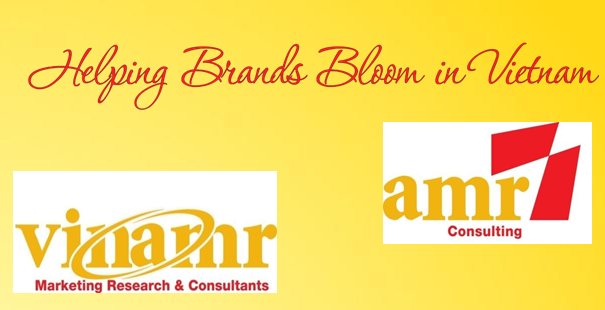 |
| In-depth, qualitative interviews, excellent tool to use in planning and evaluating due to open-ended, discovery-oriented method |
In-depth, qualitative interviews are
excellent tools to use in planning and evaluating Extension programs because
they use an open-ended, discovery-oriented method, which allows the interviewer
explore the respondent’s feelings and perspectives on a subject. This results
in rich background information that can shape further questions relevant to the
topic. The key characteristics of in-depth interviews are the following:
Open-ended Questions: Questions need to be
worded so that respondents expound on the topic, not just answer “yes” or “no.”
Many open-ended questions begin with “why” or “how,” which gives respondents
freedom to answer the questions using their own words.
Semi-structured Format: Although it is
important to pre-plan the key questions, the interview should also be
conversational, with questions flowing from previous responses when
possible. For example, if an interviewee remarks that “The elections are
approaching,” an appropriate response would be, “How do you feel about the
candidates involved?”
Seek Understanding and Interpretation. It is important to
use active listening skills to reflect upon what the speaker is saying. The
interviewer should try to interpret the conversation and should seek clarity
and understanding throughout the interview.
Recording Responses: The responses are
typically audio-recorded and complemented with written notes (i.e., field
notes) by the interviewer. Written notes include observations of both
verbal and non-verbal behaviors as they occur, and immediate personal
reflections about the interview.
In sum, in-depth interviews involve not only
asking questions, but also systematically recording and documenting the
responses to probe for deeper meaning and understanding.
Advantages &
Disadvantages:
The primary advantage
of iIn-depth Interview – a key tool for marketing research is that they provide much more detailed information than
what is available through other data collection methods, such as surveys. They also may provide a more relaxed
atmosphere in which to collect information—
people may feel more comfortable having a conversation with you about
their program as opposed to filling out a survey. However, there are a few
limitations and pitfalls, each of which is described below:
Prone to bias: Because program or clinic staff might want
to “prove” that a program is working, their interview responses might be
biased. Responses from community members and program participants could also be
biased due to their stake in the program or for a number of other reasons.
Every effort should be made to design a data collection effort, create
instruments, and conduct interviews to allow for minimal bias.
Can be time-intensive: Interviews can be a time-intensive
evaluation activity because of the time it takes to conduct interviews, transcribe
them, and analyze the results. In planning
your
data collection effort, care must be taken to include time for transcription
and analysis of this detailed data.
Interviewer
must be appropriately trained in interviewing techniques: To provide the most
detailed and rich data from an interviewee, the interviewer must make that
person comfortable and appear interested in what they are saying. They must
also be sure to use effective interview techniques, such as avoiding yes/no and
leading questions, using appropriate body language, and keeping their personal
opinions in check.
Not
generalizable:
When in-depth interviews are conducted, generalizations about the results are
usually not able to be made because small samples are chosen and random sampling
methods are not used. In-depth interviews however, provide valuable information
for programs, particularly when supplementing other methods of data collection.
It should be noted that the general rule on sample size for interviews is that
when the same stories, themes, issues, and topics are emerging from the
interviewees, then a sufficient sample size has been reached.
AMR Group is an expert
in Vietnam and its markets. The team
is local but with international training and experience, operating to global
standards. AMR
Group helps brands bloom in Vietnam through lean, focused &
reliable marketing research from VINAMR Marketing
Research & Consultants; marketing & brand strategy with AMR. VINAMR
Marketing Research & Consultants provide world class lean, focused and
reliable research through deep understanding of the brief, international
quality field, professional data handling & decision-orientated analysis,
action focused recommendation. AMR use insights from VINAMR Marketing Research &
Consultants to deliver effective marketing & branding consulting,
retail consulting & training, seminar & training: Brand War
Compiled
by AMR Group (Marketing Research in Vietnam-Nghien Cuu Thi Truong Viet Nam) on
2014
Source:
Strategic Initatives
 |
| Helping Brands Bloom in Vietnam |
This article is compiled by AMR Group to provide updated information on markets. AMR Group puts the best effort to obtain the most accurate and
timely information available from various reliable sources. The article should
be best considered a reference and indicative only. It is not an offer or
advice for any actions related to any assets. AMR Group provides no warranty
or undertaking of any kind in respect to the information and materials found
with, or linked to the report and no obligation to update the information after
the report was released. AMR Group does not
bear any.
 RSS Feed
RSS Feed Twitter
Twitter 8:59 AM
8:59 AM
 Unknown
Unknown
 Posted in
Posted in 









0 comments:
Post a Comment